What is the difference between medical cannabis and recreational cannabis, and how is the truck industry affected by the laws governing the use of Cannabis products?
Medical marijuana is a term for derivatives of the Cannabis plant that ease symptoms caused by certain medical conditions. Medical marijuana is also known as medical cannabis.
Cannabis sativa contains many active compounds, the best known are THC and cannabidiol (CBD). THC is the primary ingredient in marijuana that makes people “high.” CBD is used in many medicinal cannabis products
Researchers are studying whether medical marijuana can help treat many conditions, including:
- Alzheimer’s disease
- Appetite loss
- Cancer
- Crohn’s disease
- Diseases affecting the immune system like HIV/AIDS
- Multiple Sclerosis (MS)
- Eating disorders such as anorexia
- Epilepsy
- Glaucoma
- Mental health conditions like schizophrenia
- posttraumatic stress disorder (PTSD)
- Muscle spasms
- Nausea
- Pain
- Seizures
- Wasting syndrome (cachexia)
Cannabinoids, the active chemicals in medical marijuana, are similar to chemicals the body makes and are involved in appetite, memory, movement, and pain. But, the drug can also affect judgment and coordination and the potential for accidents and injuries.
That means that medical marijuana can impair those who use it. Therefore, just like recreational marijuana, it is illegal for truck drivers to drive if they are impaired by a medical cannabis product.
It can seem confusing. Cannabis use was once illegal but became legal in Canada on Oct. 17, 2018. It is now a commonly used and still dangerous recreational drug. Driving a truck “high”, while under the influence of marijuana has always been and will always be illegal. It can also be cause for discipline by employers in both Canada and the United States.
Worrisome is news from two recent studies. One, recreational cannabis use has been on the rise during covid. The second by the Conference Board of Canada report on Alcohol and Drug testing in Canadian Workplaces stating that cannabis use is increasing and half a million current users admit consumption before and during work.
That means the potential for truck drivers to be driving under the influence of recreational cannabis may also be on the rise.
Discretion in the use of both medicinal and recreational cannabis is required. If you are impaired by either and operate a vehicle it is illegal.
The laws regarding the use of medical cannabis can be somewhat confusing. In Canada, truck drivers legally authorized to use medical cannabis will not be subject to Ontario’s zero-tolerance drug requirements for commercial drivers as long as they are not impaired by the medicinal drug. But, penalties and criminal charges will be laid if the driver is impaired.
The Human Rights Code says an employee who has a medical cannabis prescription must be “accommodated” unless they are employed in a safety-sensitive position. Canadian employers have no duty to accommodate an employee regarding the use of recreational cannabis.
What does, “a duty to accommodate mean?” Under our charter of human rights, accommodation is is a word used to describe the duties of an employer, to give equal access and treatment to people who are protected by Ontario’s Human Rights Code. It sounds complicated and in some ways it is.
For truck drivers, who use medicinal cannabis, that use should be “accommodated” or allowed by their employer as long as it does not cause impairment and does not interfere with health and safety or performance.
The duty to accommodate does not apply to recreational cannabis use.
Except when someone with a cannabis addiction might need an “accommodation” such as an employee assistance program (EAP), time off to attend a rehabilitation program, or have access to other job-related supports.
Employers should routinely inform employees who work in safety-sensitive positions about the need to disclose if they are using a drug that could lead to on-the-job impairment and to ask for disability-related accommodation before harmful incidents happen.
The increased use of cannabis products for recreational or medicinal use means that employers and employees must become more vigilant in their use. Truck drivers and their employees are in an industry that has no shortcuts to safety. There can be no tolerance to the impaired operation of a truck regardless if the impairment is caused by alcohol, recreational drugs, or prescription drugs.
Road safety must always be Job One in our industry.



















